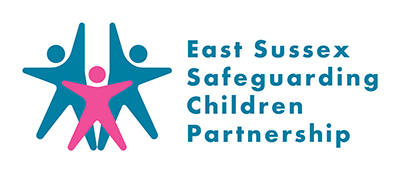Online Safety
Advice for Parents and Carers
The internet is such an integral part of children’s lives these days. It opens up so many educational and social opportunities, giving them access to, quite literally, a world of information and experiences.
Whether on a computer at school, a laptop at home, a games console or mobile phone, children and young people are increasingly accessing the internet whenever they can and wherever they are.
As you would protect your child in the real world, you will want to make sure that they are safe whatever they are doing, like learning to cross the road, online.
Online safety skills are skills for life. If your child understands the risks and can make sensible and informed choices online, they can get the most from the internet and stay safe whilst doing so – particularly from those people who might seek them out to harm them.
Where to start?
- One of the easiest – and most effective – things you can do is simply talk to your child.
- Help your child think about who sees what they share, and compare it to what they would be happy to share offline. Explain how everything they share online – like user names, images and comments – builds up a picture of who they are.
- Agree on some ground rules together – which sites and apps can be used; when it is okay to use the internet; what parental controls will you use?
- Remember that you can use technical tools like parental controls and filters. Ensure that your child knows about privacy settings on social media apps.
- Safety starts with you. You can help your child by simply setting a good example online. It’s important to show them what safe sharing looks like.
- Innocent searches sometimes reveal not so innocent results. Parental controls can be used to block this upsetting or harmful content, control in-app purchases or manage how long your child spends online. And the good news is parental controls are really easy to set up. For more on Parental controls – Visit org.uk/controls
Useful resources
NSPCC: www.nspcc.org.uk/onlinesafety
The NSPCC have teamed up with 02 to provide excellent information and advice for parents, as well as a free online safety helpline. They have also produced an app/site, on which they have reviewed the most popular apps and websites young people are using; including age ratings and how easy it is to report a problem: www.net-aware.org.uk. Parents can also choose to sign up to the Net-aware newsletter, for up-to-date information via e-mail.
The NSPCC has a campaign called ‘Share Aware’ to help your child stay safe on social networks, apps and games. Their downloadable ‘A parents’ guide to being Share Aware’ is particular useful for parents of children aged 8-12, who are starting to do more online.
Think u know: www.thinkuknow.co.uk
Think U Know is an education programme provided from the National Crime Agency’s CEOP Command. It has a range of useful information and advice for parents and carers about keeping their child safe online and advice if you are concerned about your child.
Internet Matters: www.internetmatters.org
Internet Matters is a not-for-profit organisation working with online safety experts to provide advice and information for parents to keep their children safe online.
It has an excellent interactive tool which guides you step by step through setting up parental controls on all the different devices in your home, as well as video tutorials about specific topics of concern.
UK Safer Internet Centre: www.saferinternet.org.uk
UK Safer Internet Centre is a collaborative organisation which provides a wide variety of advice and guidance on online safety. Their website is predominantly aimed at professionals and schools, but their parent guides to technology and social media checklists are valuable resources to share with parents or link to on the school website: www.swgfl.org.uk/products-services/esafety/resources
Childnet: www.childnet.com
A partner organisation of UK Safer Internet Centre, Childnet has a wealth of resources, including; leaflets, conversation starters and online storybooks; ‘Digi-ducks Big Decision’ (storybook) is available to buy from this website, or can be downloaded for free.
Get Safe Online: www.getsafeonline.org
Get Safe Online covers a lot of practical, technical information on protecting families and computers against fraud, identity theft, viruses and many other problems encountered online.
CEOP: www.ceop.police.uk
The Child Exploitation and Online Protection Centre (CEOP) are a national policing organisation which specialises in investigating grooming and sexual abuse online. Their educational website: www.thinkuknow.co.uk is suitable for children aged 4-16 and has a specific section with advice for parents/carers.
The ‘Click CEOP’ report button provides a means of reporting abuse online and can be downloaded onto the school website for easy access.
